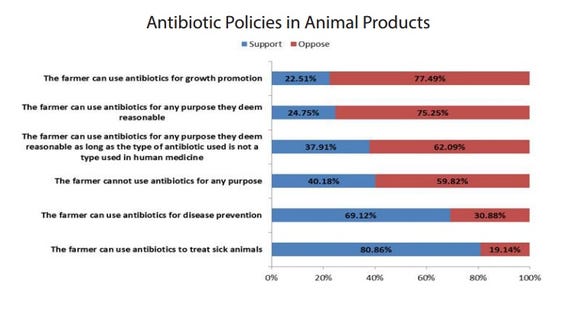September 11, 2015

Poultry company Perdue Farms made the latest move in the natural food game this week when it announced the company’s intention to purchase Niman Ranch – the largest supplier of natural pork to Chipotle Mexican Grill.
Perdue Farms chairman Jim Perdue says, “This represents the next chapter in our growth through premium proteins and trusted brands. The Niman Ranch brand continues our commitment to raising animals without antibiotics or artificial growth stimulants, and to responsible food and agriculture.”
Perdue appears to be a pawn grabber in the natural food marketplace, stacking the board in being the leading antibiotic-free animal protein supplier. The company is already supplying antibiotic-free chicken for Chick-fil-A restaurants and the addition of Niman Ranch will now advance it into the antibiotic-free pork market as well.
This year Niman Ranch ramped up pork production when another pork producer failed to meet Chipotle’s animal welfare policies, resulting in “no carnitas” for many stores. Jeff Tripician, Niman Ranch chief marketing officer, says this business deal will allow the pork producer to increase production and better supply all its customers like Whole Foods, Vitamin Cottage and Chipotle.
Still, Perdue is not the only company wanting to increase its market footprint in the natural foods industry. In May, Hormel Foods Corp. obtained natural and organic meat processor Applegate Farms for $775 million.
Obviously, these companies are following the money trail. Spins, a market research firm, shows sales of natural and organic foods have rose 9% last year. Food companies say consumers are paying up for meat touting natural labels because they perceive it as a healthier option.
Consumers weigh-in
Although the sales of natural foods have risen, it is not exactly safe to assume that all consumers have jumped on the natural or organic train. There are consumers who realize pork raised 100% antibiotic-free has the same nutritional value as pork raised in a conventional matter. Healthy pigs produce safe, quality pork. One thing that has been well-documented by the Oklahoma State University Food Demand Survey is consumers rank taste, safe and nutritional food as leading food values.
Interestingly, the August FooDS polled consumers about food companies' and restaurants’ antibiotic policies. The participants were asked if “A restaurant is considering different antibiotic policies related to the sourcing of their animal products, which of the following policies would you support or oppose the restaurant implementing for the farmers who supply their animal products?” Participants could respond “support” or “oppose” to the following six statements:
The farmer can use antibiotics for growth promotion
The farmer can use antibiotics for any purpose they deem reasonable
The farmer can use antibiotics for any purpose they deem reasonable as long as the type of antibiotics used is not a type used in human medicine
The farmer cannot use antibiotics for any purpose
The farmer can use antibiotics for disease prevention
The farmer can use antibiotics to treat sick animals
Approximately 77% of participants opposed the statement “The farmer can use antibiotics for growth promotion.” About 75% of respondents also opposed the statement ‘‘The farmer can use antibiotics for any purpose they deem reasonable.”
In contrast, a majority of participants supported the statements “The farmer can use antibiotics for disease prevention” and over 80% supported a policy in which “The farmer can use antibiotics to treat sick animals”. This latter result is interesting in light of the move by many retailers' "never ever" policies regarding animal antibiotics, states Jayson Lusk, OSU agricultural economist.

As illustrated by the OSU Food Demand Survey, consumers need to be asked regularly in terms they truly understand. Ultimately, the consumers will vote with their food dollars.
Growth of natural food sales sustainable?
Still, it is fair to ask: just how long will the average consumer pay more for a natural or organic label? Not a far-fetched question as Jim Sud, executive vice president of growth and business development for Whole Foods, shared with the audience at a grocery seminar that his company is working on a new, lower-cost store concept. Some new stores will cater to provide “fresh, healthy foods” for low-income residents. However, Sud did not disclose if the lower-cost animal proteins will be available or if the food items will meet the natural or organic label requirements. Still, it is certain that Whole Foods is also uncertain if more consumers will continue to pay for more premium products, especially as the company is reporting slumping store sales.
You May Also Like



